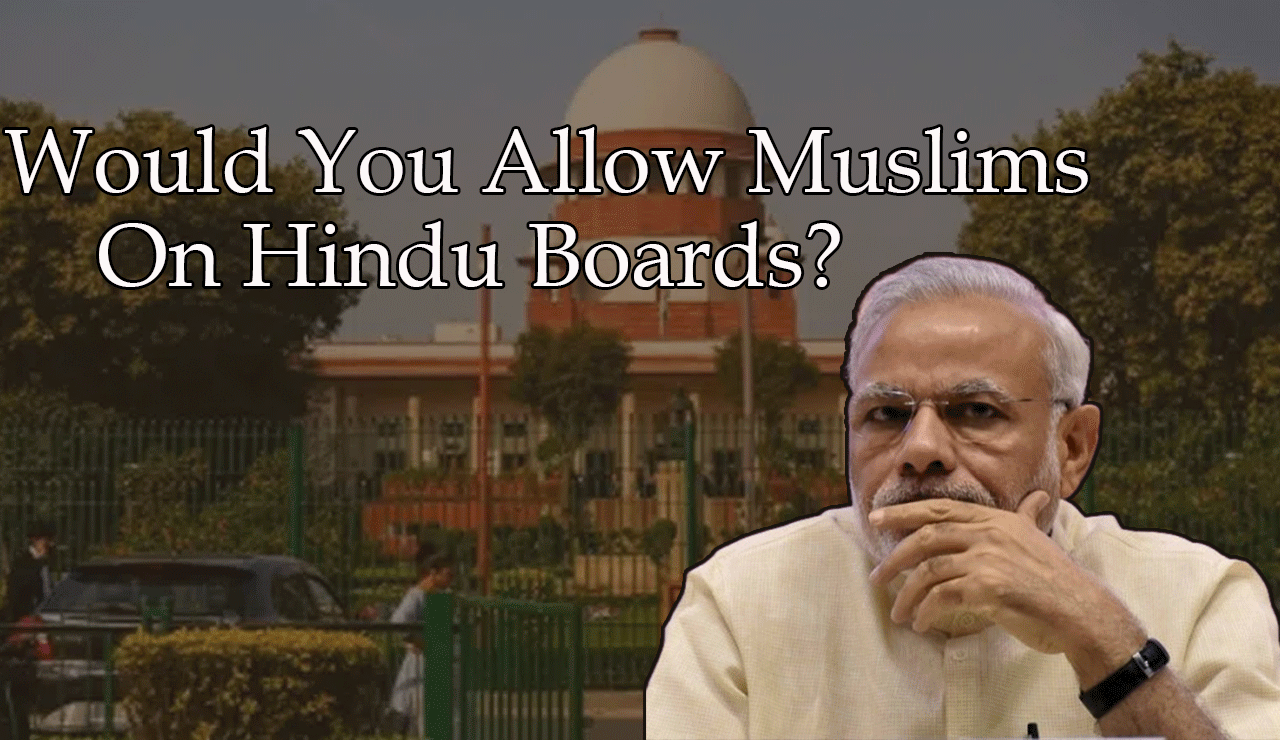Waqf Amendment Sparks Storm: Supreme Court Grills Modi Govt – “Would You Allow Muslims on Hindu Boards?”
The Supreme Court, while hearing a series of petitions challenging the Waqf Amendment Act 2025, raised significant concerns over multiple provisions of the newly enacted law.

New Delhi: The Supreme Court, while hearing a series of petitions challenging the Waqf Amendment Act 2025, raised significant concerns over multiple provisions of the newly enacted law. Chief among them were issues surrounding ‘Waqf by user’ properties and the inclusion of non-Muslims in the Central Waqf Council.
Table of Contents
A bench led by Chief Justice D.Y. Chandrachud and Justice Sanjiv Khanna posed sharp questions to the Centre, questioning whether similar interfaith involvement would be acceptable in Hindu religious boards.
CJI: “Would You Allow Muslims in Hindu Endowment Boards?”
In a notable observation, the court asked the Centre whether it would be acceptable to include Muslims in Hindu religious endowment boards, drawing a parallel with the government’s move to include non-Muslims in the Waqf Council.
Also Read: OnePlus 13T or Galaxy S25 Edge – The Ultimate Compact Clash Begins!
This comparison triggered a constitutional debate in the courtroom about religious autonomy and the limits of state intervention in matters of faith.
Kapil Sibal: “Violation of Article 26 of the Constitution”
Senior advocate Kapil Sibal, representing the petitioners, argued that the Waqf Amendment Act violates Article 26, which guarantees religious denominations the right to manage their own affairs in matters of religion.
He strongly objected to the clause that allows non-Muslim representation in the Central Waqf Council, calling it a “parliamentary overreach into religious autonomy.” Sibal said:
“Who is the State to tell us how inheritance will be in my religion? The law is an encroachment on the religious rights of nearly 200 million Muslims in this country.”
CJI Responds: “Article 26 Is Secular and Universal”
Countering Sibal’s arguments, CJI Sanjiv Khanna stated:
“But in Hinduism, it does happen. So Parliament has enacted a law for Muslims… Article 26 will not bar enactment of law in this case. It applies universally and in a secular fashion.”
This exchange underlined the broader debate on the uniform application of religious laws, the role of Parliament in religious affairs, and the interpretation of secularism under the Indian Constitution.
What’s Next?
As of now, the Supreme Court has not delivered a final judgment but is expected to continue hearings on the matter. The court has asked the Union Government to provide a detailed explanation on the intent and constitutionality of key provisions in the Waqf Amendment Act.
